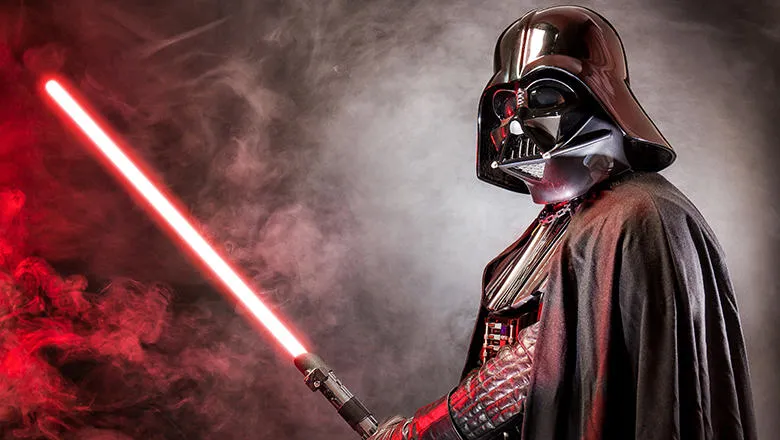20 December 2019
Master, mentor, role models: where Star Wars and behavioural science meet
Michael Sanders and Eliza Kozman
MICHAEL SANDERS and ELIZA KOZMAN: What can we learn from the movies about works and what doesn't when it comes to mentoring?

Today sees the release of the Rise of Skywalker, the last instalment in the third trilogy of Star Wars films. Some people think that the story is an epic space opera about magic wizards on space ships flying around to prevent other, evil magic space wizards from controlling the galaxy, using a variety of increasingly implausible planet-destroying weapons. For others, this is a tale that shows while dictatorships are able to make large infrastructure investments, democracy will tend to triumph in the end.
Of course, as Obi-Wan Kenobi teaches, a lot of the things we believe are only true from a certain point of view. From our point of view, the Star Wars saga is about role models, mentoring and what behavioural scientists call “messenger effects”.
How does a senior figure inspire us to do good or evil in the world, for the betterment of ourselves or society? For every good example of a good mentoring relationship in the Star Wars universe, there is a bad (evil) one: for every Luke-and-Yoda combination, there is an Anakin-and-Sidious one. Some of these influential relationships are more remote, more role-model relationships – after being told by Obi-Wan about his father’s glittering career as a pilot/Jedi Knight, Luke decides to embark on an adventure to follow in his father’s footsteps. Decades later, Kylo Ren keeps Darth Vader’s ruined helmet, following in the path of his own late grandfather. Neither Kylo nor Luke has met their role models when they receive this inspiration.
Painful as it is to admit, there may be a limit to how much we can learn from Star Wars, except that the Jedi make terrible role models. Luke’s Master, Obi-Wan Kenobi, was also the master of Darth Vader of planet-destroying laser fame. Obi-Wan’s master, Qui-Gonn Jinn, is also the master of the Sith Count Dooku. Luke’s only recorded apprentice turns to the dark side, and Yoda, that paragon of barely comprehensible wisdom, was involved in the training of almost every major villain.
In desperation, we’ve therefore turned to a more scientific approach, which is why we’re editing a special issue of the Journal of Behavioural Public Administration on role models, mentors and messenger effects. We’re looking for submissions of papers on these topics – empirical findings that can help shine a line on the ways these phenomena, which litter our cultural consciousness work (or, just as importantly, don’t work). We’re keen to hear from academics and practitioners alike, so please do think about submitting something. If you’ve got any questions, please reach out to us at eliza.kozman@kcl.ac.uk and michael.t.sanders@kcl.ac.uk.
Michael Sanders is a Reader in Public Policy at King’s College London and Director of Evidence Development and Incubation in the Policy Institute at King’s. He is the author, with Susannah Hume, of Social Butterflies: Reclaiming the Positive Power of our Social Networks.
Eliza Kozman is a Visiting Research Fellow at the Policy Institute and Senior Advisor at the Behavioural Insights Team. In January 2020 she will be Deputy Director of the centre for Transforming Access and Student Outcomes in Higher Education.
